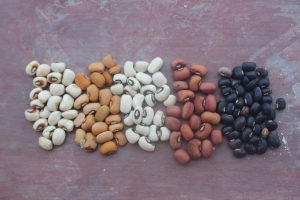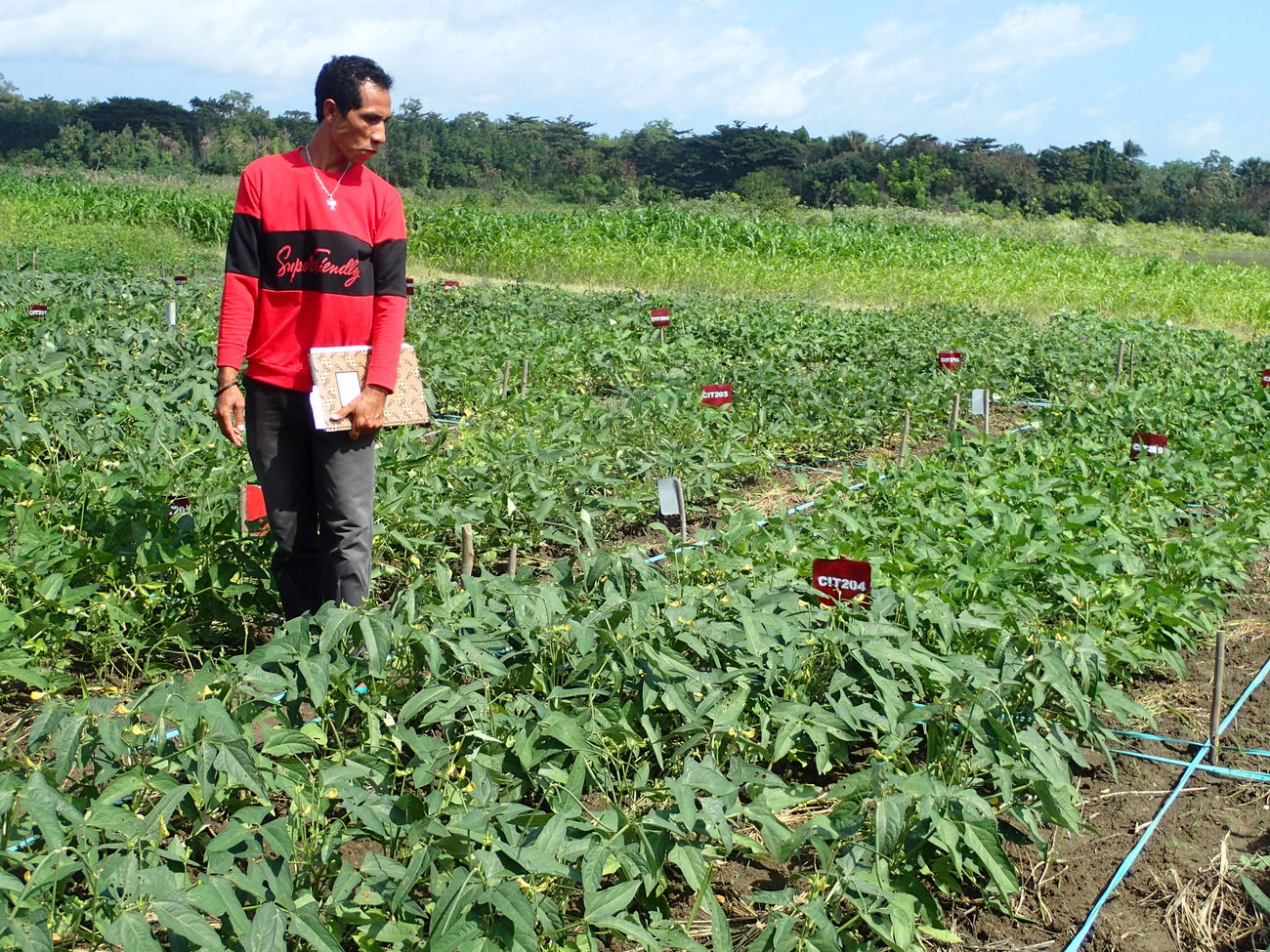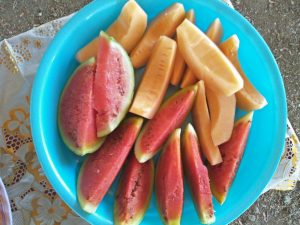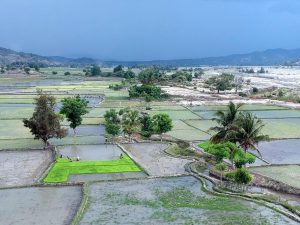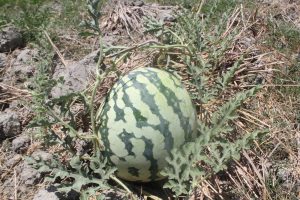AI-Com researchers and local farming families have successfully harvested cauliflower and broccoli crops in Triloca suco, Baucau municipality, for the first time, as part of work to find new ways of sustainably increasing crop productivity and profitability in Timor-Leste.
Local farming families had never before planted broccoli or cauliflower in this area, as farming families believe that a cooler, mountainous climate is required for these vegetables. But on-farm experimenting has now shown that with reliable water, and the use of organic-based fertilisers, these horticulture crops can grow well in Triloca, at an elevation of 400m above sea level.
Triloca is a on the edge of the Baucau plateau, on the road from Baucau to Venilale. Researchers selected this area for experiments due to its access to water – the chosen location is at a spring, near the school at Fatumaca. Selecting sites with reliable water access is critical for ensuring the innovations introduced to communities can increase crop production sustainably.
The recently harvested broccoli and cauliflower crops produced great yield. This was achieved through two key interventions.
First, the crops were planted in the dry season, which has slightly cooler daytime temperatures than the wet season. Following on from AI-Com’s experiments into growing ‘cold-climate’ crops like common beans and carrots at sea level, we know that many more species that families have previously thought only grew in colder, upland areas can in fact grow at lower altitudes – if planted at the right time.
The coldest temperatures recorded at sea level in Timor-Leste occur in early June, which is a suitable time for sowing crops like broccoli and cauliflower in places like Triloca.
At Triloca, the productive crops were both sowed at the correct time, and planted with the second key intervention: biochar plus.
Biochar plus is a new product developed by AI-Com to improve soil quality and boost crop yields. Made from the organic fertiliser rice hull biochar – which itself is made by semi-burning the discarded hulls of rice grains – the biochar is enhanced with nitrogen (2 per cent) and phosphorous (1 per cent) to improve the quality of soil crops are planted into. This is an effective and low-cost product which can be made in Timor-Leste, without relying on imported, expensive chemical fertilisers, but which still contributes to soil health and plant productivity.
The biochar feeds the soil and the added chemical elements feed both the plant and the soil – resulting in strong, productive and health horticulture plants. The nutritious and high-value broccoli and cauliflower crops harvested this week by farming families at Triloca demonstrates the potential of using locally grounded farming innovations in areas of Timor-Leste to help produce more and better food for families in Timor-Leste.
